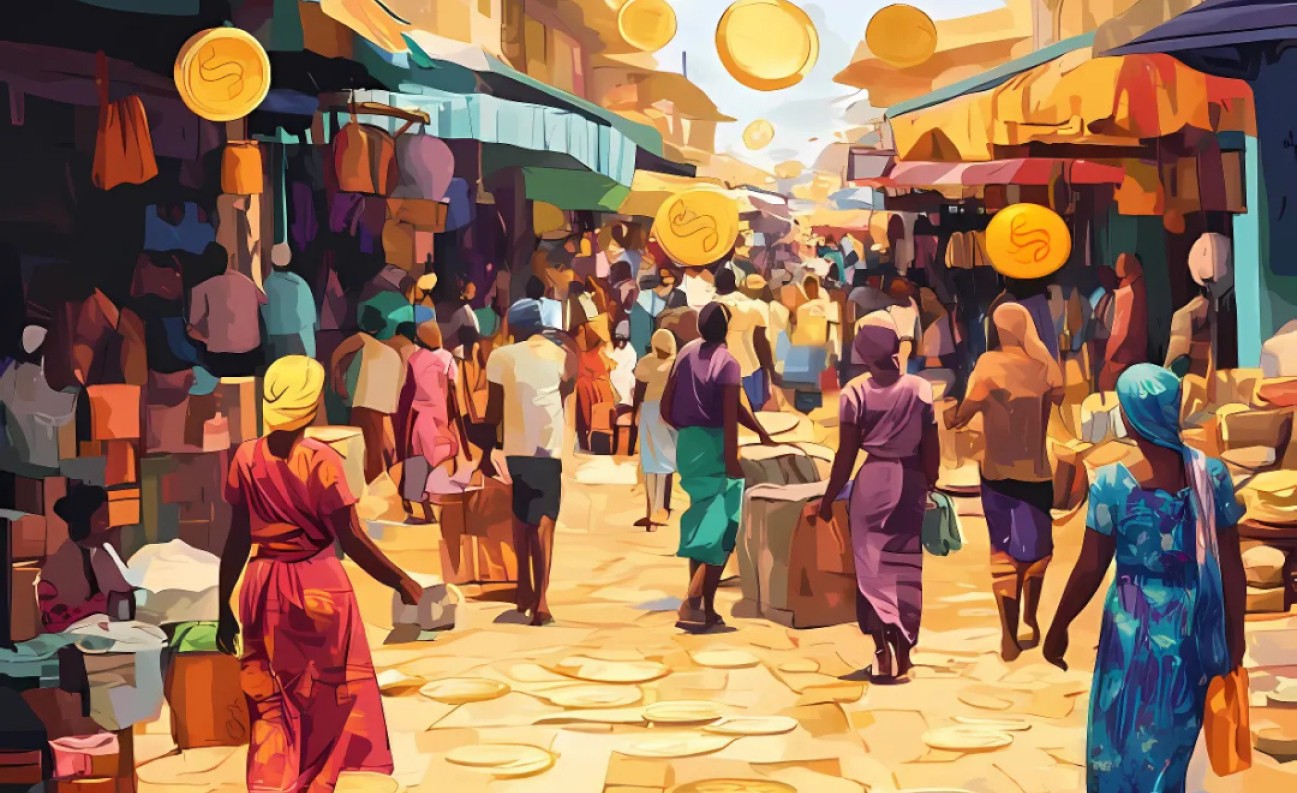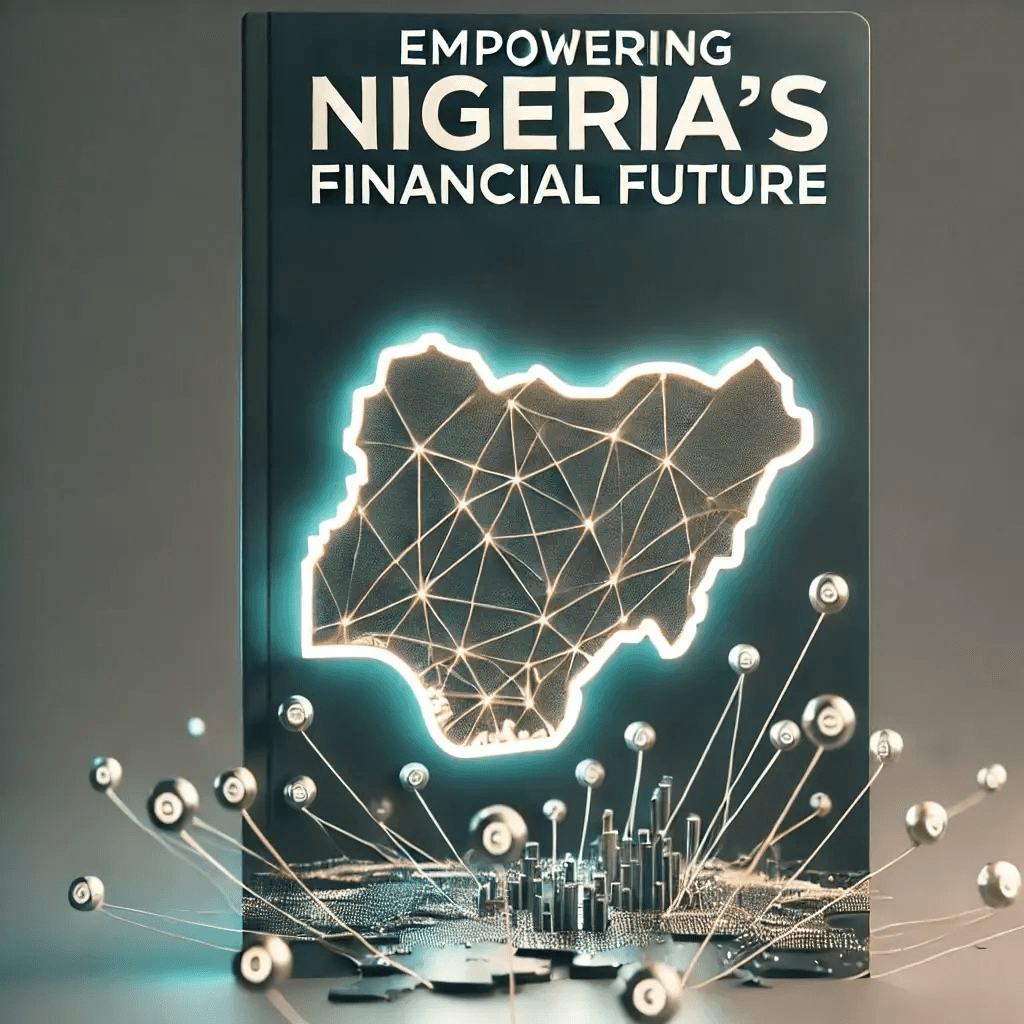October 30, 2024
Navigating the intricate world of finance in Nigeria can often be challenging, particularly with the Naira's volatility impacting savings and transactions. Enter stablecoins—digital currencies designed to maintain a stable value relative to a specific asset, like the US Dollar.
These have become an integral tool for many Nigerians seeking alternatives to traditional financial systems. With benefits such as reduced volatility and efficient cross-border transactions, stablecoins are gradually becoming a preferred choice, changing the way money is moved and managed.
The following sections will unravel their significance, the types frequently used, factors propelling their adoption, and the various use cases revolutionizing financial activities across the nation.
These insights aim to enhance your understanding of stablecoins and the role they play in Nigeria's economic landscape, while also addressing the challenges that lie ahead.

Overview of Stablecoins in Nigeria
Stablecoins have emerged as a game changer for Nigeria's economy, providing a counterbalance to the fluctuating Naira and enabling smoother financial transactions.
In a country where approximately 43% of cryptocurrency transactions involve stablecoins, they play a vital role in enhancing financial inclusion and economic stability.
Why Nigerians Favor Stablecoins
Nigerians favor stablecoins for their less volatile nature compared to other cryptocurrencies like Bitcoin. While Bitcoin and others have made their mark, stablecoins stand out for their practical use in everyday transactions.
Bitcoin's volatility makes it less ideal for regular financial activities, highlighting the practical advantage of stablecoins. Here's more on recent stablecoin adoption in Nigeria.
Benefits for Businesses
Businesses engaged in international trade greatly benefit from adopting stablecoins, which are not only limited to transactions. These digital currencies help businesses manage the risks associated with currency fluctuations more effectively, offering a level of financial stability that is harder to achieve with traditional currency exchange methods.
Financial Inclusion
The ease of integrating stablecoins with mobile money services enhances their appeal, promoting broader financial inclusion across Nigeria. Despite facing regulatory challenges, the widespread adoption of stablecoins in Nigeria underscores their importance as economical and efficient financial tools.
For a visual exploration of stablecoins' impact in Africa, including Nigeria, and their real-world applications in international payments, check out this insightful YouTube video:
https://www.youtube.com/watch?v=yII9c4239nk
Prominent Stablecoins in Nigeria and Their Benefits
Stablecoins play a pivotal role in Nigeria's financial landscape, offering numerous advantages over traditional currency mechanisms. Here, we'll delve into the types of stablecoins prevalent in Nigeria and their unique benefits.
US Dollar Tether (USDT)
USDT stands out as the most adopted stablecoin in Nigeria. Its popularity can be attributed to its ability to safeguard wealth against the devaluation of the Nigerian Naira. Many Nigerians use USDT for cross-border transactions, capitalizing on its widespread availability and the ease it offers compared to traditional remittance methods. This stablecoin represents a critical financial tool for those seeking stability and efficiency in their financial dealings.
USD Coin (USDC)
While not as prominently adopted as USDT, USDC holds a firm place within Nigeria's stablecoin ecosystem. It provides currency stability and is gaining traction for its dependable store of value. USDC supports a wide range of financial transactions, adding considerable value to the broader stablecoin landscape in the region.
Binance USD (BUSD)
BUSD, issued by Binance, was once considered for stablecoin transactions in Nigeria, especially before regulatory challenges impacted Binance's operations in the country. Although specific usage data is limited, Binance's past prominence suggests that BUSD had some level of circulation.
TrueUSD (TUSD) and Paxos Standard (PAX)
Interestingly, TrueUSD and Paxos Standard don't strongly appear in Nigeria's market. Their adoption is likely minimal compared to prevalent stablecoins like USDT and USDC, as evident from the lack of notable mentions or usage in the country.
The significant volume of stablecoin transactions in Nigeria highlights their importance, showing that transactions worth almost $3 billion were noted in Q1 2024. These stablecoins offer efficient and cost-effective solutions for numerous small-scale transactions, showcasing their increasing role in Nigerian commerce. Source: Chainalysis Blog

Key Drivers Behind Stablecoin Adoption in Nigeria
Economic challenges and currency devaluation
The unprecedented low hit by the Naira in recently underscores the need for more stable alternatives like stablecoins.
As the local currency loses value, many Nigerians turn to stablecoins such as USDT and USDC to safeguard their wealth, offering a semblance of stability amid economic turmoil.
These digital assets are proving crucial as they serve as a hedge against inflation, which is painfully high in Nigeria compared to other African nations. The deepening currency crisis has led residents to increasingly seek solace in stablecoins.

Cross-border transaction efficiency
Recent trends in stablecoin adoption with underlying causes
This trend of opting for stable digital currencies is not isolated to Nigeria alone. Similar economic adversities can be observed in other Sub-Saharan countries such as Ethiopia, Kenya, and South Africa, where stablecoins also gain traction as a means to navigate economic uncertainties.
Incoming crypto investments
The regulatory environment in Nigeria is becoming more supportive, which is likely to boost stablecoin adoption further. The Central Bank of Nigeria lifted the ban on banks engaging with cryptocurrency companies in December 2023, unveiling new opportunities for collaborations and investments.
Simultaneously, the Nigerian SEC's Accelerated Regulatory Incubation Program (ARIP), requiring virtual asset service providers to register and undergo evaluation, exemplifies a push towards clear regulatory oversight.
As a result, investor confidence is expected to strengthen, which could spur more crypto investments and, subsequently, stablecoin usage.
Initiatives like the cNGN, Nigeria's first regulated local stablecoin, promise additional momentum. This project exemplifies the government's endorsement of blockchain and digital assets, setting the stage for a flourishing stablecoin ecosystem.
According to sources, the overall push for a well-defined regulatory framework is instrumental for boosting investor confidence and stablecoin adoption.
Use Cases for Stablecoins in Nigeria
Stablecoins and Financial Transactions in Nigeria
Stablecoins have revolutionized the way financial transactions are conducted in Nigeria, providing a bridge between traditional finance systems and the digital age. Their role extends across various aspects of the economy, bringing efficiency and realization to financial activities.
Remittances and Cost-effective Fund Transfers
Stablecoins are increasingly used for remittances, where the traditional banking systems fall short. Stablecoins like USDT offer a quick and affordable way for Nigerians to send money across borders, often with lower fees than traditional methods. According to data from Chainalysis, the costs associated with stablecoins can be dramatically lower, exemplifying their utility.
Trading and Investment Stability
In an economy where the local currency often experiences fluctuations, stablecoins offer a safe haven. Many Nigerians prefer to save or invest in them, as they are tied to the US dollar, thus providing a layer of protection against economic instability.
Facilitating Online Payments and E-commerce Transactions
For e-commerce, stablecoins simplify the payment process, offering consumers and merchants a cost-efficient way to transact online. This has helped spur the growth of digital marketplaces by allowing transactions that are swift and dependable.
Participation in Decentralized Finance (DeFi)
Beyond transactional purposes, stablecoins are crucial in the DeFi space, enabling Nigerians to earn yields and access lending platforms. Platforms like Busha are examples of how DeFi harnesses the potential of stablecoins to offer more than traditional banking services.
People's Behavior in Using Stablecoins
Nigerians' engagement with stablecoins shows a clear shift towards financial tools that offer better value. Their use in everyday transactions and savings highlights how individuals are becoming increasingly savvy with their financial choices in the face of limited traditional banking options.
Status of Infrastructure in Nigeria for Stablecoins
The country's stablecoin infrastructure is one of the most advanced on Sub-Saharan Africa. This advanced infrastructure caters to a variety of financial needs, from simple transactions to complex financial services. Nonetheless, the evolving regulatory landscape poses challenges as the broader DeFi ecosystem continues to adapt. With the Central Bank of Nigeria's recent regulatory shifts, the potential for further stablecoin integration into the financial landscape is substantial. Here's a summary of some important updates.

Understanding Hurdles in Stablecoin Growth in Nigeria
Lack of public awareness and understanding
One of the key challenges to the adoption of stablecoins in Nigeria is the lack of public awareness and understanding. Despite their advantages, many Nigerians do not fully understand what stablecoins are or how they function, leading to hesitation and skepticism. This gap is further widened by the country's generally low levels of financial literacy. Many people are unaware of secure storage practices, the potential risks associated with hacking and fraud, or even the practical benefits that stablecoins can offer.
Awareness campaigns by government, fintech, and educational institutions are vital, helping individuals make informed decisions through workshops and online resources. Exchanges like Yellow Card, Bitmama, and Busha often take the initiative in educating users, underscoring the importance of understanding the real-world utility of these digital assets.
The role of exchanges is huge in driving this educational push, emphasizing the shift in perception towards practical financial solutions.
Unclear regulatory framework
Moreover, the unclear regulatory framework presents another significant hurdle. Although the Central Bank of Nigeria (CBN) has recently lifted its ban on digital asset banking, the overall regulatory landscape remains ambiguous. Past accusations against foreign exchanges, including allegations of money laundering and foreign exchange racketeering, have resulted in a crackdown that negatively impacts stablecoin adoption. The absence of specific regulations for stablecoins creates a 'gray area' that leaves users and businesses uncertain about their legal standing. This regulatory ambiguity also raises concerns regarding monetary policy because the CBN fears large-scale stablecoin adoption could weaken its control over the Naira by amplifying capital outflows.
Establishing clearer guidelines, akin to those discussed by international bodies like the International Monetary Fund, can mitigate these risks and stabilize the adoption process. Implementation of independent audits of stablecoin reserves, for instance, could pave the way for increased trust and compliance.
Infrastructure and access constraints
Additionally, infrastructure and access constraints further complicate stablecoin adoption in Nigeria. The crackdown on major crypto exchanges, such as Binance, has forced users to migrate to informal channels like Telegram groups and peer-to-peer networks, substantially increasing risk and complexity.
This is especially true for individuals in rural areas, where internet access and financial infrastructure are limited, creating significant barriers to digital finance participation. With a large segment of Nigeria's population unbanked or underbanked, integrating stablecoins with the existing financial framework remains a daunting task. Although smartphone penetration is on the rise and is forecasted to reach 66% by 2025, reliable internet connectivity continues to be a critical challenge, particularly in less urbanized regions.
Encouraging the formal registration and operation of international cryptocurrency exchanges within Nigeria could greatly alleviate many of these constraints, offering safer and more efficient access paths for users.

Understanding Hurdles in Stablecoin Growth in Nigeria
While stablecoins offer numerous benefits, their adoption in Nigeria is not without challenges. Understanding these hurdles is crucial to address them effectively and leverage the full potential of stablecoins.
Regulatory Concerns
One of the most significant challenges is the regulatory uncertainty surrounding cryptocurrencies and stablecoins in Nigeria. The Central Bank of Nigeria (CBN) has expressed skepticism about cryptocurrencies, leading to an uncertain regulatory environment.
This can deter individuals and businesses from fully embracing stablecoins, afraid of potential legal repercussions or future restrictions. Clear guidelines and supportive policies from regulators are essential to foster confidence and widespread adoption. Learn more here on recent updates regarding regulations.
Access to Technology
Despite the growing penetration of mobile technology, there remains a segment of the population that lacks access to the necessary infrastructure to utilize stablecoins effectively.
This digital divide means that stablecoin adoption is more prevalent among urban populations with better internet connectivity and access to smartphones, leaving rural areas with limited access to these financial tools. Efforts to improve digital literacy and infrastructure in underserved regions are vital to bridge this gap.
Volatility and Trust Issues
Although stablecoins are designed to be stable, issues with stability or pegs can occur, primarily when the underlying assets are not adequately managed.
Trust is another concern, as some users may be wary of entrusting their funds to digital currencies, especially if they are not familiar with how they work. This concern is compounded by occasional reports of fraud or misuse in the cryptocurrency space.
Education on the functioning and benefits of stablecoins and assurance of transparency and security from stablecoin issuers can help build trust among potential users.
Technical Complexity
For some users, the technical aspects of using stablecoins, such as setting up digital wallets and understanding blockchain transactions, can be daunting. This complexity may prevent individuals from exploring stablecoins as a viable financial option.
Simplifying the user experience, providing user-friendly platforms, and offering support and guidance can significantly enhance adoption rates.
Scalability Issues
As the demand for stablecoins increases, the question of scalability comes into play. Some blockchain networks may struggle to handle large volumes of transactions efficiently, leading to delays or increased costs. This could undermine the practicality of stablecoins for everyday use.
Developing robust infrastructure capable of supporting scalable solutions is crucial for maintaining the usability of stablecoins at a larger scale.
Empowering Nigeria's Future with Stablecoins
In Nigeria, the adoption of stablecoins presents a transformative potential for the economy by addressing critical challenges like inflation, financial inclusion, and international trade efficiency. By leveraging stablecoins, Nigerians can protect their assets from the devaluation of the naira while gaining access to more affordable and efficient cross-border payment solutions. This is particularly beneficial for families dependent on remittances and for businesses looking to engage in global commerce.
Strategies for Enhancing Adoption and Addressing Challenges
To further bolster stablecoin adoption, several strategies are pivotal:
Clear Regulatory Framework: Establishing and enforcing a transparent regulatory landscape is crucial. Nigeria's Central Bank and the Nigerian Securities Commission have made commendable strides in this direction. Initiatives like the Accelerated Regulatory Incubation Program help create clarity and build trust among virtual asset service providers.
Enterprise Adoption Programs: The National Blockchain Policy, which aims to integrate blockchain technology across sectors like governance, finance, and supply chains, is essential for fostering enterprise adoption. Such programs are key to demonstrating the tangible benefits of stablecoins to businesses and the government alike.
Education and Awareness Campaigns: Spearheaded by entities like the Ministry of Communications, Innovation, and Digital Economy, these initiatives are crucial. They focus on educating the population about the various applications and advantages of stablecoins, thereby demystifying their use.
Development of Local Stablecoins: There is a significant interest in developing local stablecoins, such as the cNGN, which can complement the central bank digital currency and enhance local currency stability. Such initiatives can promote more stable economic conditions and improve confidence in digital currencies.
Collaboration between Sectors: Partnerships between traditional financial institutions and the crypto sector are necessary for building a robust stablecoin ecosystem. These collaborations, along with efforts to enhance digital infrastructure and internet access, can facilitate technological innovation and ensure interoperability across blockchain networks.
By addressing these areas, Nigeria can effectively enhance the adoption of stablecoins and unlock their potential to transform the economic landscape. These strategies, when implemented, will empower households, businesses, and the economy to navigate the challenges of currency instability, thereby fostering a more resilient and prosperous future.




